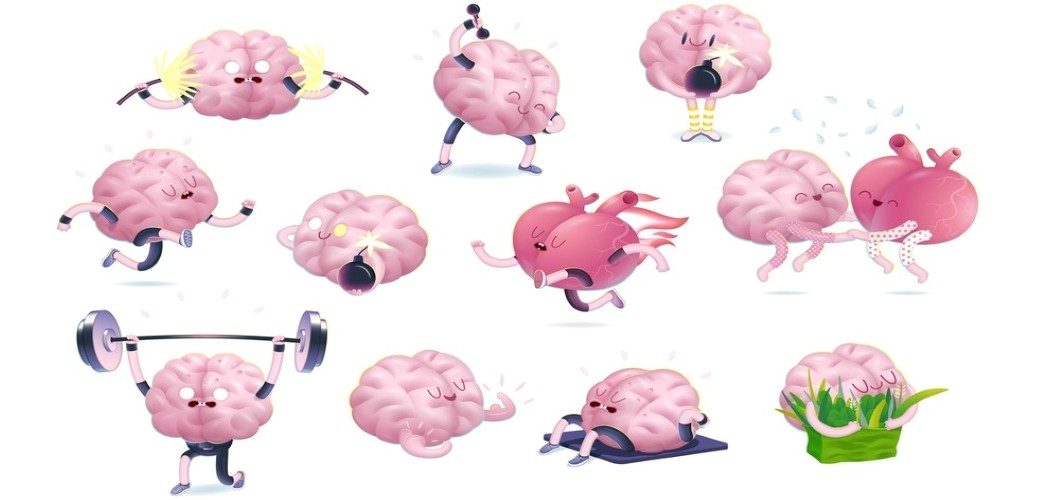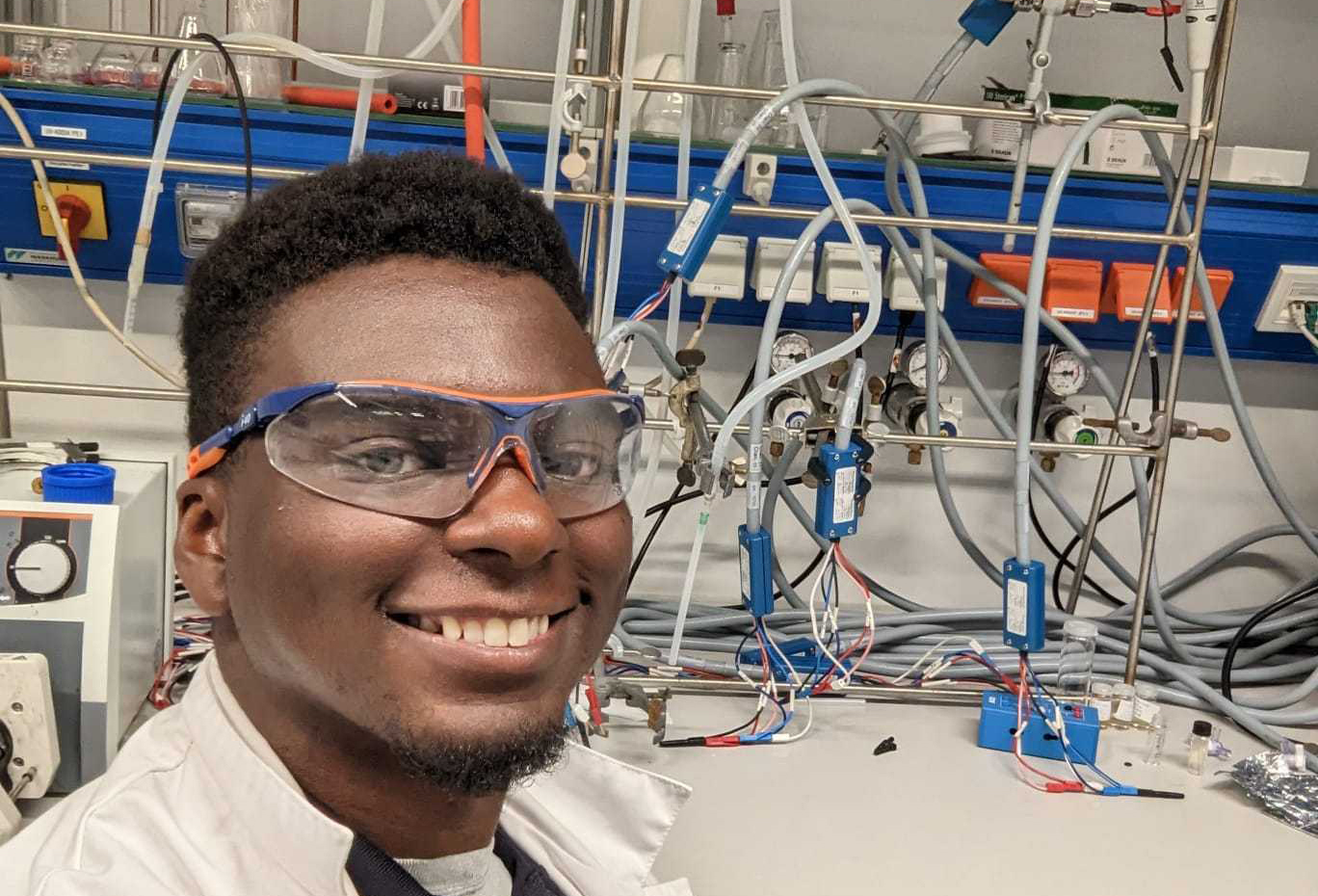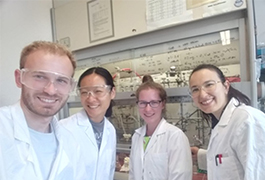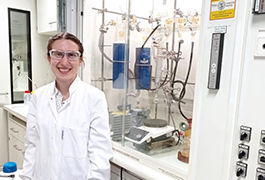With School in Full Swing, Academic Stamina is Essential. Here’s How You Maintain It.

There is no doubt that we are still calibrating ourselves to the “new normal” of our COVID-compromised world, and for chemistry students, going back to in-person learning doesn’t magically make up for missing out on practicing lab skills or participating in a research experience. You might be feeling less engaged in school or nervous about your lab skills because of lost lab opportunities.
It’s understandable if you don’t have your usual stamina to stay engaged and energized with learning. Just making it through the pandemic is a win! And now that in-person classes are back in full swing, it’s time to build your academic stamina back up.
If you find yourself having trouble focusing during class, if studying has become more of a struggle, or if you just feel overly tired at the end of the day, here are some great tips to get you back on track to being a resilient student.
Making physical adjustments
While it seems obvious that going to class in-person is different than attending online, there are adjustments that may be more challenging than you think. You will be sitting in a classroom seat, in one position, and can no longer pace around, recline, or plant yourself in a comfy bed or sofa like you’ve grown used to. Less freedom of movement means using different muscles and that might feel physically uncomfortable or even painful. It takes more energy to sit up in class than to lie down in bed with the camera off while streaming a lecture. It’s okay to admit that returning to the classroom can be challenging!
But there are ways to modify your surroundings rather simply trying to power through the problem. A small pillow (or even a balled-up sweater) for your lower back can provide lumbar support in those hard chairs. A fidget toy can give your hands a little bit of freedom. You can also check with your school’s academic support office or health services office for tools to help channel your energy through the day.
If you are zoning out (or, worse, dozing off) during class, check your sleep habits. Are you getting enough rest? Can you adjust your schedule to go to bed earlier, get up later, or rest between classes? When you do sleep, is it good-quality sleep? A good pillow, mattress topper, or white noise app can make a world of difference.
How you feed your body matters just as much as how you rest it, especially now that your refrigerator is no longer within arm’s reach. Protein- and fiber-rich foods give you long-lasting energy so you don’t crash in the middle of lab. Vitamins and minerals also keep your body healthy, for more energy and mental focus (and fewer illnesses). If you can, prepare lunches and snacks ahead of time to take with you, so you don’t have to waste time trekking to campus eateries and waiting in long lines for more processed food. Plus it’ll save you money or campus card meals!
Work on focusing
We have all done it: we have browsed our smartphone or other screen while participating in a virtual meeting or class. Focusing in the age of the smartphon is not easy. However, no one is as good at multitasking as they think they are. Relearning how to single-task will help you absorb information and make learning more efficient.
A good way to avoid temptation is to put your phone out of easy reach. When your focus drifts in other directions during class, figure out a way to consciously snap yourself back to paying attention. Sometimes stimuli like a beverage, a hard candy, or fidget toy can help make you more alert.
Your notes and the amount of information you remember will be the biggest self-check on how well you pay attention. Take time at the end of the day to see how much you retained from that day’s classes. Build in the strategies that help you and ditch the ones that don’t.
Build back boundaries
During pandemic shutdowns, everything blended. Because school or work was also home, many found it harder to establish boundaries. You learned how to be a student at home and found ways to set up your time and space according to your circumstances.
You can still use those techniques for budgeting your time. Build a schedule with time to study and time to relax and do your best to force yourself to focus during that study time. Start with small bits—perhaps 10 minutes—but 10 minutes with no distractions!
Read or work on a problem with your cell phone turned off and resist the urge to check emails. Be alone with just the material. You may have to experiment with the number of minutes dedicated to focus time. Just remember that if you hit a wall and need a break, you can always try to build up to a longer focus period the next time. You’ll learn what rhythm for study, exercise, and rest works best for you.
Turn your mistakes into lessons
Not every quiz, exam, or homework assignment is going to be prized material. But everything you do in college is a learning experience and a chance for you to improve. When your performance isn’t what you hoped it would be, stop and reflect. Ask yourself: What specifically went wrong? Do I really understand how to apply what I learned? Have I retained the information? Am I struggling with memorization? Did I understand the questions/concepts? Did I run out of time? This self-examination can help you pinpoint what went wrong and come up with specific strategies to do better next time.
If you didn’t know the material, you can revisit your notes or textbook to relearn concepts or how to solve problems. If it is application you're struggling with, see if you can find problems that apply concepts and work on them alone or with a study partner. If you are having trouble managing timed assessments, time yourself while working on homework problems and identify what takes you the longest—setting up the problem, recalling the information to solve, drawing structures, etc. Then practice becoming more efficient in the areas that give you the most trouble.
You can always talk to your professor or learning services to see if they have advice to help you finish your problems in the time allotted. If you are struggling with self-confidence, remember that it’s okay to reach out for help from your professors, from health services, or from a mental health professional. That’s what they are for! There are many ways to get help, and it’s important that you put your physical and mental health first.
During the pandemic, you learned a lot of chemistry and also a lot about yourself as you’ve worked through online, in-person, and every hybrid possibility of learning in between. Take care of yourself, be patient, build on your strengths, and identify your weaknesses and soon you’ll build yourself back to the student you want to be.




